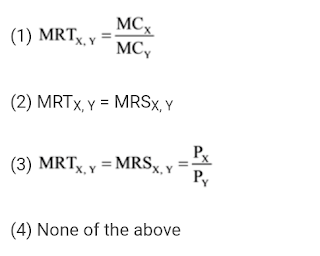INFLATION & Recession
A Recession is a period when the economy of a country is doing badly, for example because industry is producing less and more people are becoming unemployed. The recession caused sales to drop off. We should concentrate on sharply reducing interest rates to pull the economy out of recession.
In a recession, you would usually expect a fall in the inflation rate due to lower demand. Though in theory, we can have a period of stagflation – rising inflation and falling output (e.g. after a rise in the price of oil) A recession means two consecutive quarters of negative economic growth. With falling economic output and rising spare capacity, prices are likely to fall (or at least go up at a slower rate.)
This is because:Firms have unsold goods. Therefore, to improve their cash flow they try discounting goods to get rid of their excess stock.Lower wage growth. As unemployment rises and there is more competition for job vacancies, it is harder for workers to bargain for higher wages. Unemployment should reduce wage inflation, which has a prominent impact on headline inflation.
Lower commodity prices. A global recession should usually reduce demand for commodities and therefore reduce the price of commodities – leading to low cost push inflation.Lower expectations. Low confidence in an economy usually reduces inflation expectation,Falling asset prices.
In a recession, the price of houses and other assets tends to fall due to lower demand. This leads to lower wealth and therefore, less spending.This graph shows the recession of 2009. During 2008 and 09, the inflation rate falls from 5% to under 2%.
Why inflation can rise during a recession
Inflation may not always fall in a recession.In the 1970s, we had a recession caused by cost-push factors. Oil prices tripled in late 1973. This caused inflation to soar – but also caused an economic downturn – firms and consumers couldn’t afford the higher oil prices. In other words, 1974 was a recession caused by cost factor.
2008-12 downturn:In 2008, at the start of the recession, inflation was running close to 5% – but this was primarily due to cost-push inflation from higher oil prices.During 2012, there was a double dip-recession with low economic growth, but rising inflation. This was because Impact of depreciation in value of Pound. Fall in the value of pound increased the cost of imports which feeds into inflation.A rise in oil and hence petrol prices.
A rise in taxes:The rise in spare capacity was less than expected. Helped by zero interest rates, there were fewer insolvencies than in previous years. Also, the rise in unemployment is less than in previous years,Firms have sought to maintain good cash flow by not cutting prices.
Deflation and the Great Depression
In the Great Depression, there was large fall in output, and this caused deflation. Prices fell quite significantly.The reason the Great Depression let to deflation was
Fall in money supply due to banking crisis in the US
Fiscal austerity. UK government pursued austerity in 1931 – cutting unemployment benefits and raising taxes.
Global slump caused global fall in commodities and manufactured goods.
The Pound was overvalued in the Gold Standard. An overvalued exchange rate tends to reduce inflation
In a recession, the price of houses and other assets tends to fall due to lower demand. This leads to lower wealth and therefore, less spending.This graph shows the recession of 2009. During 2008 and 09, the inflation rate falls from 5% to under 2%.
Why inflation can rise during a recession
Inflation may not always fall in a recession.In the 1970s, we had a recession caused by cost-push factors. Oil prices tripled in late 1973. This caused inflation to soar – but also caused an economic downturn – firms and consumers couldn’t afford the higher oil prices. In other words, 1974 was a recession caused by cost factor.
2008-12 downturn:In 2008, at the start of the recession, inflation was running close to 5% – but this was primarily due to cost-push inflation from higher oil prices.During 2012, there was a double dip-recession with low economic growth, but rising inflation. This was because Impact of depreciation in value of Pound. Fall in the value of pound increased the cost of imports which feeds into inflation.A rise in oil and hence petrol prices.
A rise in taxes:The rise in spare capacity was less than expected. Helped by zero interest rates, there were fewer insolvencies than in previous years. Also, the rise in unemployment is less than in previous years,Firms have sought to maintain good cash flow by not cutting prices.
Deflation and the Great Depression
In the Great Depression, there was large fall in output, and this caused deflation. Prices fell quite significantly.The reason the Great Depression let to deflation was
Fall in money supply due to banking crisis in the US
Fiscal austerity. UK government pursued austerity in 1931 – cutting unemployment benefits and raising taxes.
Global slump caused global fall in commodities and manufactured goods.
The Pound was overvalued in the Gold Standard. An overvalued exchange rate tends to reduce inflation


Comments
Post a Comment